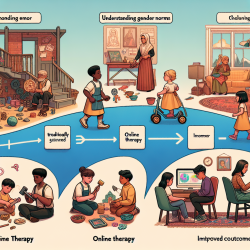The Nurture Early for Optimal Nutrition (NEON) programme provides valuable insights into the infant feeding and care practices within the British-Bangladeshi population. This qualitative study identified several modifiable practices and socioecological factors that can be targeted to improve nutritional outcomes. For speech-language pathologists and other practitioners, implementing these findings can significantly enhance the care provided to children from ethnically diverse communities.
Key Findings from the NEON Programme
The NEON study identified two main themes:
- Modifiable infant feeding and care practices
- Socioecological factors influencing these practices
Modifiable Infant Feeding and Care Practices
The study highlighted several practices that could be improved:
- Early and Late Introduction of Solid Foods: Some parents introduced solids too early or too late, often influenced by mixed messages from advertising and cultural beliefs.
- Overfeeding: Practices such as forced feeding, unregulated portion sizes, and frequent 'top-up' feeding were common.
- Feeding to Fill the Belly: Caregivers often aimed to ensure the child’s belly was full, sometimes prioritizing high-energy and sugary foods.
- Prolonged Parent-Led Feeding: Practices like hand feeding and prolonged bottle feeding were prevalent, potentially impacting cognitive-motor skill development and speech.
Socioecological Factors
Several broader factors were found to influence feeding practices:
- Society and Culture: There is a societal perception that a 'chubby' baby is a healthy baby, and caregivers often face pressure from extended family and social norms.
- Physical Environment: Limited space for physical activity and the abundance of fast food outlets contribute to suboptimal feeding practices.
- Information and Awareness: Parents often receive conflicting advice and lack consistent support, highlighting the need for better communication and tailored interventions.
Implications for Practitioners
Practitioners can use these findings to inform their approach to working with families from diverse backgrounds. Key strategies include:
- Tailored Interventions: Develop culturally sensitive programmes that consider the social and cultural norms of the target population.
- Community Engagement: Work closely with community members and extended families to ensure the interventions are well-received and effective.
- Consistent Messaging: Provide clear, consistent advice on infant feeding practices to reduce confusion and improve adherence.
- Focus on Education: Educate parents on the importance of responsive feeding, appropriate portion sizes, and the risks of sugary foods.
Encouraging Further Research
The NEON study underscores the need for ongoing research to develop and refine interventions that support optimal infant feeding practices in ethnically diverse communities. Practitioners are encouraged to stay informed about the latest research and consider participating in or supporting further studies.
To read the original research paper, please follow this link: Nurture Early for Optimal Nutrition (NEON) programme: qualitative study of drivers of infant feeding and care practices in a British-Bangladeshi population.










